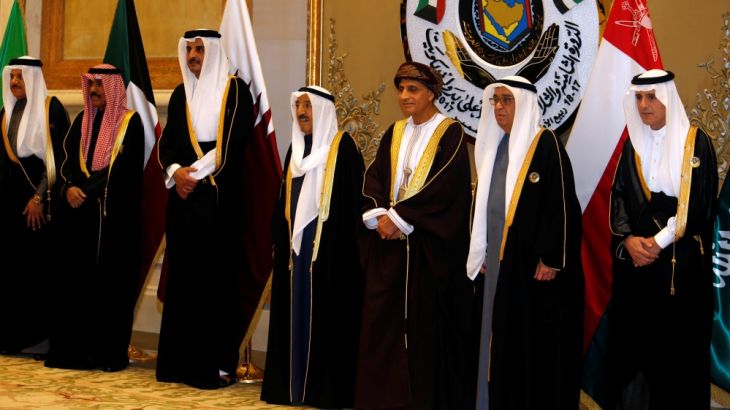
What remains of the GCC?
Doubts about future after only two leaders attend annual summit in Kuwait.
Leaders of the six-nation Gulf Cooperation Council (GCC) traditionally meet for their summit every December.
The organisation normally brings together Saudi Arabia, Bahrain, Kuwait, Qatar, the United Arab Emirates and Oman.
Keep reading
list of 4 itemsQatar emir condemns ‘genocide’ in Gaza, urges ceasefire at GCC summit
‘Enduring commitment’: Key takeaways from US-GCC joint statement
Analysis: Efforts to end Assad isolation gather speed after quake
The GCC was formed in 1981 but 2017 is a year of crisis.
Three members – Saudi Arabia, Bahrain and the UAE – are blockading a fourth: Qatar.
With the diplomatic crisis now entering its seventh month there were questions whether the annual summit meeting would go ahead at all.
In the end it did, but it would be difficult to call the results a success. Only the summit’s host, the Emir of Kuwait, and Qatar’s Emir were there.
The blockading countries sent relatively low-level delegations. As a result, what was planned to be a two-day event lasted only a few hours. Saudi Arabia and the UAE used the occasion to announce the formation of a new economic and military cooperation organization separate from the GCC.
Does the GCC still have a future – or has it been damaged beyond repair?
Presenter: Laura Kyle
Guests:
Abdullah Baabood – Gulf Studies Programme, Qatar University.
Abdulaziz Alhorr – Qatar Finance and Business Academy.
Abdullah Al-Shayji – Professor of Political Science, Kuwait University.